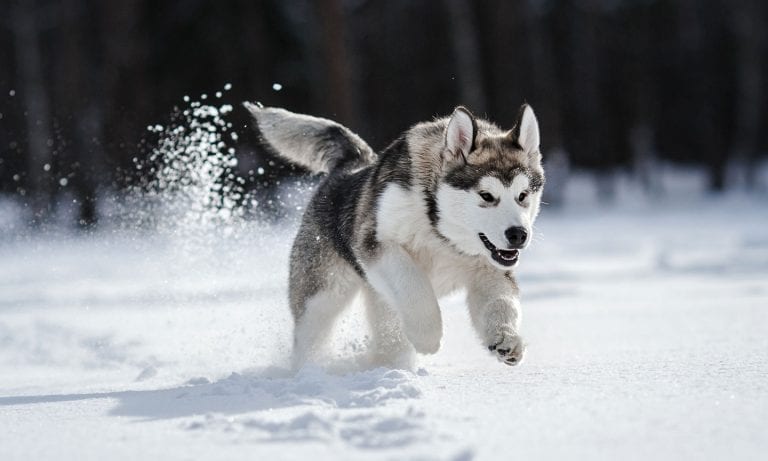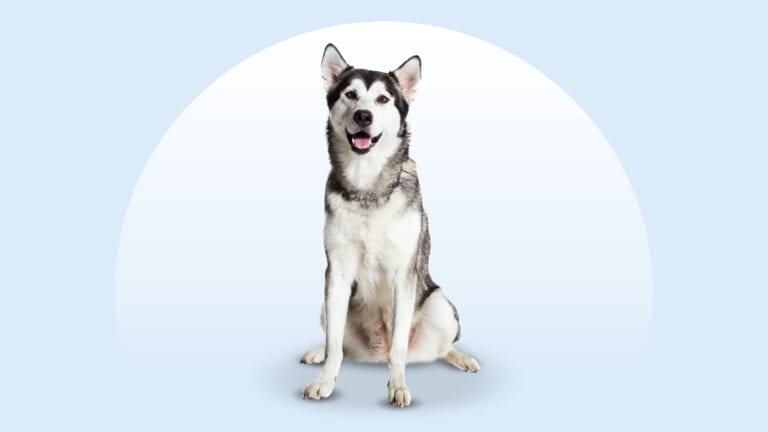Siberian Husky vs Alaskan Malamute

Breed Snapshot
Best For
Siberian Huskies are as energetic as they are strikingly beautiful. This independent breed needs firm training, as well as consistent exercise and mental stimulation. If you're looking for a loyal canine partner to join your...
Siberian Huskies are as energetic as they are strikingly beautiful. This independent breed needs firm training, as well as consistent exercise and mental stimulation. If you're looking for a loyal canine partner to join your active adventures, this might just be the breed for you.
Siberian Husky Temperament
Siberian Huskies, renowned for their friendliness and intelligence, are wonderful companions who thrive on social interaction. They have an inherent need to be surrounded by both humans and fellow canines, and express their sociable nature in unique ways: Many will “talk” to you using howls, growls and whimpers, which is...
Siberian Huskies, renowned for their friendliness and intelligence, are wonderful companions who thrive on social interaction. They have an inherent need to be surrounded by both humans and fellow canines, and express their sociable nature in unique ways: Many will “talk” to you using howls, growls and whimpers, which is an endearing part of their personality.
Their affability comes with two caveats:
- Since they’re predisposed to welcoming strangers, they lack the traits of a typical guard dog. (Not a problem if you don’t need a guard dog!)
- Siberian Huskies don’t enjoy long periods of isolation or contemplation. In such circumstances where they are stressed or bored, they may contemplate, and act on, destructive behaviors. If left in the backyard, Huskies are notorious for their escape attempts. Secure fencing is a must to prevent exploratory escapades.
Huskies are also strong-willed, a trait that may make training a bit of a challenge. They’re typically good around kids and other dogs, but they do have a high prey drive and may chase cats and small animals. However, with an experienced pup parent who can train and socialize them consistently, they can be a well-behaved family member.
Siberian Husky Traits

Breed Snapshot
Best For
Alaskan Malamutes live for outdoor adventures and are devoted to their family. Strong and affectionate, they make excellent companions for those seeking an active pup who loves to play.
Alaskan Malamute Temperament
Alaskan Malamute dogs thrive on human attention and are happy to welcome a crowd to your house. They don’t play favorites with family members, either—they’re equal-opportunity snugglers. They’re not barkers, but they are chatty—yelps, howls and “woo woos” are all found in their repertoire, so...
Alaskan Malamute dogs thrive on human attention and are happy to welcome a crowd to your house. They don’t play favorites with family members, either—they’re equal-opportunity snugglers. They’re not barkers, but they are chatty—yelps, howls and “woo woos” are all found in their repertoire, so expect them to join in on the conversation.
Goofy dogs with a lovable personality, Mals are also great with kids and babies, although they’ll need to be supervised around small children. They’re big dogs, so they might accidentally knock a child over, and if they nip, they could cause injury. (They do have a strong bite force.)
While Alaskan Malamutes are not aggressive toward people, they can be strong-willed. Plus, this breed has a high prey drive and may not respond well to other dogs if not properly socialized and trained. They also have a penchant for taking off after critters or cats, so think twice about off-leash adventures. For these reasons, it’s best to train your pup from the get-go.
These athletic dogs are always up for outdoor playtime, especially if you give them a job. If you don’t have a sled, this working dog breed is just as willing to pull you on a bike. Or just strap a backpack on your Mal and go hiking.
Savvy problem-solvers, Malamutes are capable of finding new ways to dig under the fence or chew up the furniture unless you keep them challenged. Games of hide-and-seek and teaching them cool tricks are all good ways to exercise their brains. So are dog sports like agility, rally and bikejoring (a sport created to help keep sled dogs in shape in off-winter months).




